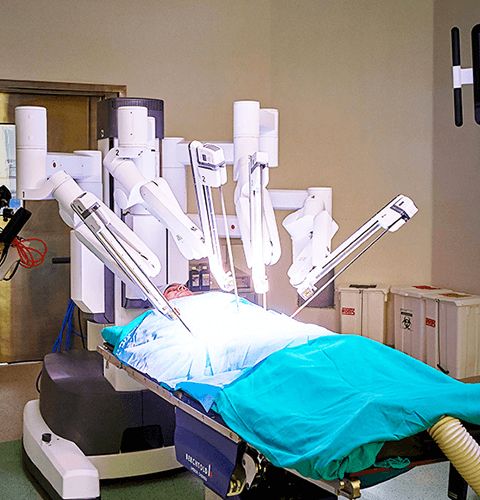-
Book Appointments & Health Checkup Packages
- Access Lab Reports
-
-
Book Appointments & Health Checkup Packages
-
Centre of
Excellence
Centre of Excellence
Other Specialities
- Anesthesiology
- Bariatric Surgery
- Cancer Care
- Dental Medicine
- Dermatology
- Ear Nose Throat
- Fetal Medicine
- Hemato Oncology
- ICU and Critical Care
- Internal Medicine
- Interventional Radiology
- IVF and Infertility
- Laboratory Medicine
- Microbiology
- Neonatology & NICU
- Nutrition And Dietetics
- Ophthalmology
- Paediatric And Child Care
- Paediatric Surgery
- Pain Medicine
- Pathology
- Pharmacy
- Physiotherapy
- Plastic, Reconstructive And Cosmetic Surgery
- Podiatric Surgery
- Psychiatry
- Pulmonology (Respiratory and Sleep Medicine)
- Radiology
- Reproductive Medicine
- Rheumatology
- Sports Medicine
- Vascular and Endovascular Surgery
Speciality Clinics
- Doctors
- Hebbal
-

Bengaluru

-

Bhubaneswar
-

Delhi - NCR

-

Delhi - NCR
-
-

Goa
-

Jaipur
-

Kolkata

-

Mangaluru
-

Mysuru
-

Patiala
-

Pune

-

Salem
-

Vijayawada
- International Patients











Biochemistry
Biochemistry treatment in Hebbal, Bangalore
Biochemical approaches help us comprehend the chemical structures and processes that underpin human health and disease, showing the underlying alterations. The consequences of discovering the molecular causes of diseases are enormous. Clinical Biochemistry is the branch of laboratory medicine concerned with detecting chemicals (both natural and synthetic) in blood, urine, and other bodily fluids. These test findings can detect health concerns, determine prognosis, and guide a patient's therapy.
Clinical biochemistry treatment in Hebbal, Bangalore is a science that analyses and delivers a qualitative and quantitative examination of biological fluids such as blood, serum or plasma, urine, or tissues for specific chemical contents or physiologic processes. Doctors use these test findings to screen for, diagnose, and monitor disease. Clinical Biochemistry & Immunology practitioners and members are also involved in research to develop new diagnostic clinical laboratory tests to identify or monitor illness, disease processes, or disease treatment.
Need
Biochemistry in the clinical field is essential for numerous reasons and is an integral part of the medical laboratory. The following are some of the needs that biochemistry fulfils,
-
Patient laboratory test interpretation for screening, diagnosis, management, and monitoring of disease processes
-
Interpretive guidelines for other laboratory service professionals are created by selecting and validating reference intervals, interpretative comments, and essential values.
-
Development, implementation, and monitoring of testing algorithms, suitable testing turnaround times, practice guidelines, and treatment pathways in collaboration with clinical colleagues
-
Oversee and guide point-of-care testing programmes in both hospital and community settings.
-
Policy and process development and implementation to guarantee the laboratory provide high-quality information while meeting regulatory requirements and standards of practice.
-
Methods and equipment for testing are chosen.
-
Evaluation of possible new tests' scientific and medical value
-
Review the ongoing importance of existing tests to maximise patient care and healthcare resource utilisation.
Scope
Biochemists investigate the biological events that take place at the molecular level within living organisms. Biochemical techniques are used for human health and disease in medical biochemistry.
Medical biochemistry's standard scope typically encompasses the following,
-
Carbohydrates and lipids; amino acids and proteins; blood and plasma; biological membranes; nucleic acids are all chemical components of the human body (DNA and RNA)
-
Cell formation, enzyme activity, membrane transport mechanisms, homeostasis, blood coagulation (clotting), oxygen transport, neurotransmitter function, and ageing are all essential chemical processes in the human body.
-
Mineral metabolism and nutrition
-
Molecular biology.
-
Heredity.
-
Genomics.
Use
Biochemistry has expanded our understanding of how biochemical changes related to physiological changes in the body in physiology, the study of body function. It aids in understanding the chemical aspects of biological processes like digestion, hormone function, and muscle contraction-relaxation.
Pathologists can employ biochemical analysis to confirm predictions based on patient testimony in pathology, the study of how abnormal biochemistry relates to disease situations in the human body.
For example, if a patient reports sudden, acute pain in one or more joints, the doctor may suspect gout, a kind of arthritis caused by an excess of uric acid in the bloodstream. Biochemistry can then establish whether gout is the cause of the disease by analysing uric acid levels.
Because all diseases have a molecular basis, biochemistry allows us to comprehend the chemical mechanisms at work in circumstances as diverse as,
-
diabetes
-
hypo- and hyperthyroidism, hyperammonemia
-
hypoparathyroidism and hyperparathyroidism
-
jaundice
-
kidney disorder
-
hypercholesterolemia
-
phenylketonuria
-
sickle cell disease
-
fluorosis of the teeth
-
rickets
-
alkalosis and acidosis
-
disorders of lysosomal storage
-
atherosclerosis
Biochemists working in medicine can study new remedies for diseases using information gathered from the chemical nature of disorders. Book an appointmnet at Manipal Hospitals to know more about treatments with the help of best doctors in Bangalore.
Home Hebbal Specialities Laboratory-medicine Biochemistry





